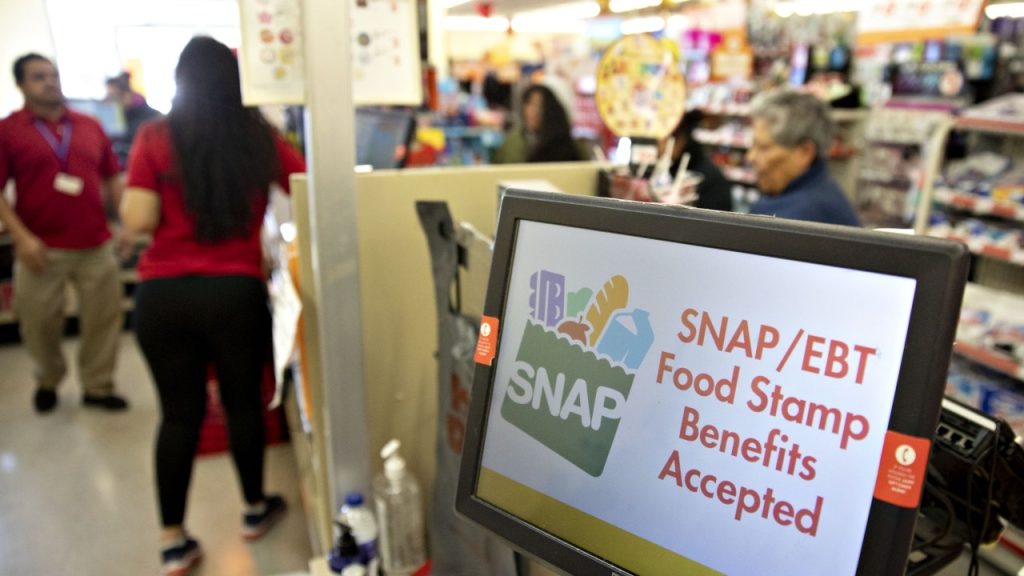Hunger Amid Legal Battle: The Trump Administration’s Fight Over SNAP Funding
In a high-stakes legal battle with profound implications for millions of America’s most vulnerable citizens, the Trump administration and the federal judiciary find themselves locked in a tense standoff over the future of the nation’s food assistance program. On Friday, the Justice Department filed an emergency appeal to block a federal judge’s order requiring full funding of the Supplemental Nutrition Assistance Program (SNAP). This appeal marks the latest development in a contentious dispute over the nutritional lifeline that supports 42 million low-income Americans who depend on these benefits to feed their families. U.S. District Judge John McConnell had issued a stern directive just one day earlier, ordering the Department of Agriculture to allocate $4 billion in contingency funds to ensure SNAP benefits continue uninterrupted through November. The judge’s frustration was palpable during the hearing, as he noted the urgency of the situation with a sobering reminder: “It’s likely that SNAP recipients are hungry as we sit here.” The Trump administration’s proposal to fund only 65% of SNAP benefits drew particular criticism from the bench, highlighting the human dimension of what might otherwise seem like an abstract budgetary dispute.
The administration’s legal team struck back forcefully in their appeal to the First Circuit Court of Appeals, characterizing Judge McConnell’s order as an “unprecedented injunction” that “makes a mockery of the separation of powers.” Justice Department lawyers argued there was no legal foundation for directing the USDA to “somehow find $4 billion in the metaphorical couch cushions.” Their position frames the matter as a constitutional crisis rather than a humanitarian one, suggesting that only Congress, not the courts, can resolve the funding impasse. This legalistic approach stands in stark contrast to Judge McConnell’s focus on the immediate human needs at stake, illustrating the fundamentally different priorities driving each side of this conflict. While the administration focuses on procedural arguments about proper governmental authority, millions of Americans face the very real prospect of food insecurity if the program’s funding lapses.
This current legal confrontation didn’t emerge from nowhere. Judge McConnell had previously issued an order requiring the USDA to fund SNAP benefits before they were scheduled to expire on November 1—a deadline that would mark the first time in the program’s six-decade history that funds would run out. In his latest ruling, the judge explicitly accused the administration of non-compliance with that earlier directive, stating they “did nothing to ensure that the money would be paid on Wednesday.” Beyond the immediate funding crisis, McConnell also highlighted the administration’s failure to address known distribution problems that could cause significant delays in getting assistance to recipients even if funding were restored. These technical issues could mean weeks or months without food assistance for some of the nation’s most vulnerable households, transforming a temporary disruption into a prolonged humanitarian crisis for families already living on the edge of subsistence.
The human toll of this legal battle extends far beyond courtroom arguments. SNAP recipients include working families struggling with low wages, elderly Americans on fixed incomes, people with disabilities, and children whose developing bodies and minds require proper nutrition. For many households, SNAP benefits make the difference between having enough to eat and going hungry. Research consistently shows that food insecurity is associated with numerous negative health outcomes, including increased rates of chronic disease, mental health issues, and developmental problems in children. The timing of this funding crisis is particularly problematic as winter approaches, when utility costs rise and seasonal employment opportunities often decrease, creating additional financial strain on low-income households. What appears on paper as a percentage of funding translates in real life to fewer meals, more difficult choices, and increased anxiety for millions of Americans already navigating precarious economic circumstances.
The administration’s argument that “this is a crisis, to be sure, but it is a crisis occasioned by congressional failure, and that can only be solved by congressional action” highlights a fundamental tension in how different branches of government view their responsibilities toward vulnerable citizens. While technically accurate from a budgetary standpoint, this position effectively places procedural considerations above immediate human needs. Judge McConnell’s approach, by contrast, prioritizes preventing harm to SNAP recipients while the political process works through its challenges. This difference represents more than just legal interpretation—it reflects competing philosophies about government’s role in addressing urgent social needs. For the 42 million Americans who rely on SNAP, these philosophical differences have immediate and tangible consequences, transforming an abstract legal debate into a deeply personal struggle for basic necessities.
As this legal battle continues to unfold, the clock ticks for millions of families wondering if they’ll have enough to eat in the coming weeks. The First Circuit Court of Appeals now faces the difficult task of balancing legal precedent and constitutional principles against the pressing humanitarian concerns raised by Judge McConnell. Whatever the court decides will have far-reaching implications not just for the immediate funding of SNAP, but potentially for how similar situations are handled in the future. Meanwhile, food banks and community organizations across the country are preparing for a potential surge in demand should SNAP benefits be reduced or delayed. For the millions of Americans who depend on this vital program—children, seniors, people with disabilities, and working families—the outcome of this legal dispute is not merely a matter of jurisprudence or politics, but a question of whether they’ll have enough food to make it through the month ahead.


